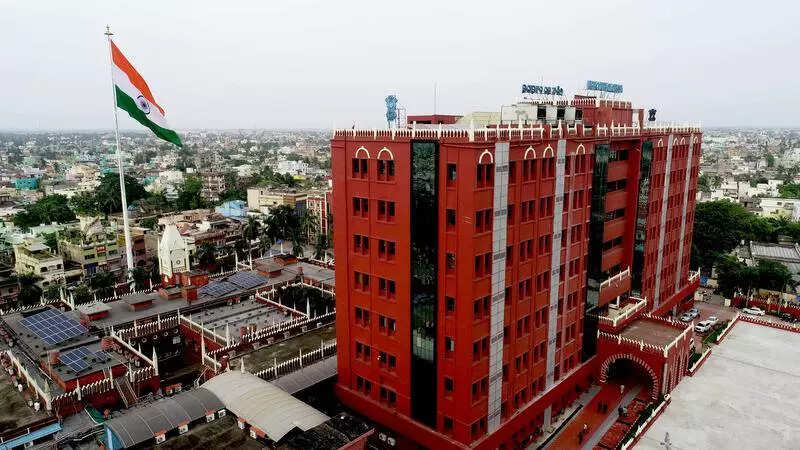HC criticises Pocso court judge for treating adult accused as juvenile in rape case

Cuttack: Orissa high court has come down heavily on a special Pocso court judge for treating a 20-year-old accused as a child in conflict with law (CICL) simply because he was a minor at the time when he had first committed the alleged rape in 2017.
Justice S K Panigrahi, while stating that the accused shall be tried as a major, made adverse remarks against the manner in which the Sambalpur Pocso court judge referred the accused to the Juvenile Justice Board for trial on July 3, 2023.
“That the special court, in disregard of material facts, could so blithely cast aside the weight of law and reason to refer the accused to the Juvenile Justice Board is not merely an error in judgment but a dereliction so grave that it shakes the very foundation of judicial responsibility,” Justice Panigrahi observed in his Feb 14 judgment.
The primary allegation against the accused, who is currently around 22 years of age, was that he had forcibly engaged in a physical relationship with the minor girl, took obscene photographs of her, and threatened to make them viral if she told anyone. The girl’s plight started when the accused was 14 years. He repeatedly raped her between 2017 and 2023.
The girl lodged a complaint at Burla police station after the accused raped her again on June 16, 2023 and threatened to kill her if she revealed the incident to anyone. A case was registered against the accused under various sections of IPC and Pocso Act on June 18.
On July 3, 2023, the special Pocso court, Sambalpur, concluded that the accused was a CICL at the time of the alleged offence and transferred the case to the Juvenile Justice Board for trial. He has been out on bail since Sept 16, 2023.
While hearing the girl’s plea against the Pocso court decision, Justice Panigrahi said, “The notion that proceedings should commence under juvenile jurisdiction simply because the accused was a minor at the inception of a continuing offence is a proposition so untenable, so discordant with established legal doctrine, that it raises profound concerns, not merely about the fairness and reliability of the adjudication, but about the very competence of the judge who rendered it.”
Accordingly, Justice Panigrahi set aside the July 3, 2023 order of the Pocso court and remanded the matter for fresh proceedings, “wherein the accused shall be tried strictly in accordance with law, as a major, without recourse to the protective provisions of the Juvenile Justice Act, 2015”.
“What is most disconcerting in the present case is the manner in which the additional district and sessions judge-cum-special court (Pocso), despite the clear and unequivocal contents of the FIR, charge sheet and the victim’s statement recorded under Section 164 of the CrPC, has proceeded to refer the accused to the Juvenile Justice Board for further proceedings,” Justice Panigrahi said.
“This situation leaves room for only two conclusions; either the learned judge has fundamentally misunderstood the law, failing to recognise the clear principle that an individual who has attained majority cannot be tried as a minor, or there are more troubling factors at play, suggesting possible interference with the proper course of justice,” he observed.
Justice S K Panigrahi, while stating that the accused shall be tried as a major, made adverse remarks against the manner in which the Sambalpur Pocso court judge referred the accused to the Juvenile Justice Board for trial on July 3, 2023.
“That the special court, in disregard of material facts, could so blithely cast aside the weight of law and reason to refer the accused to the Juvenile Justice Board is not merely an error in judgment but a dereliction so grave that it shakes the very foundation of judicial responsibility,” Justice Panigrahi observed in his Feb 14 judgment.
The primary allegation against the accused, who is currently around 22 years of age, was that he had forcibly engaged in a physical relationship with the minor girl, took obscene photographs of her, and threatened to make them viral if she told anyone. The girl’s plight started when the accused was 14 years. He repeatedly raped her between 2017 and 2023.
The girl lodged a complaint at Burla police station after the accused raped her again on June 16, 2023 and threatened to kill her if she revealed the incident to anyone. A case was registered against the accused under various sections of IPC and Pocso Act on June 18.
On July 3, 2023, the special Pocso court, Sambalpur, concluded that the accused was a CICL at the time of the alleged offence and transferred the case to the Juvenile Justice Board for trial. He has been out on bail since Sept 16, 2023.
While hearing the girl’s plea against the Pocso court decision, Justice Panigrahi said, “The notion that proceedings should commence under juvenile jurisdiction simply because the accused was a minor at the inception of a continuing offence is a proposition so untenable, so discordant with established legal doctrine, that it raises profound concerns, not merely about the fairness and reliability of the adjudication, but about the very competence of the judge who rendered it.”
Accordingly, Justice Panigrahi set aside the July 3, 2023 order of the Pocso court and remanded the matter for fresh proceedings, “wherein the accused shall be tried strictly in accordance with law, as a major, without recourse to the protective provisions of the Juvenile Justice Act, 2015”.
“What is most disconcerting in the present case is the manner in which the additional district and sessions judge-cum-special court (Pocso), despite the clear and unequivocal contents of the FIR, charge sheet and the victim’s statement recorded under Section 164 of the CrPC, has proceeded to refer the accused to the Juvenile Justice Board for further proceedings,” Justice Panigrahi said.
“This situation leaves room for only two conclusions; either the learned judge has fundamentally misunderstood the law, failing to recognise the clear principle that an individual who has attained majority cannot be tried as a minor, or there are more troubling factors at play, suggesting possible interference with the proper course of justice,” he observed.
















